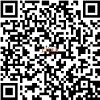*corresponding author
AbstractThe research undertaken sought to address a critical vacuity within contemporary Muslim scholarship on 'educational leadership. The empirical investigation explored the relationship between the formation of 'Religiosity' and the styles of 'Educational Leadership' as experienced by graduates of Muslim Institutes of Higher Education in the UK (MIHEUK). The study was conducted via a single case design with embedded units of analysis. The instruments utilized for data collection were the Muslim Subjectivity Interview Schedule (MSIS), Semi- Structured Interviews (SSI), and Focus Group Discussions (FGD). The data was analyzed to deduce the participants' mode of subjectivity by adopting an established criterion developed by Sahin. The study concluded that the educational leadership' styles of Muslim educators working within traditional and hybrid MIHEUK influenced modes of 'religiosity' and 'subjectivity' of Muslim students.
KeywordsLeadership; Islamic education; Empirical inquiry; Religiosity
|
DOIhttps://doi.org/10.31763/ijele.v3i1.111 |
Article metrics10.31763/ijele.v3i1.111 Abstract views : 5847 | PDF views : 771 |
Cite |
Full Text Download Download
|
References
[1] M. Mukadam, A. Scott-Baumann, A. Chowdhary, and S. Contractor, “The training and development of Muslim Faith Leaders Current practice and future possibilities,” 2010, available at: Google Scholar.
[2] A. A. El-Affendi, Contextualising Islam in Britain: exploratory perspectives. Centre of Islamic Studies, 2009, available at: Google Scholar.
[3] M. T. A. Lopes Cardozo and R. Shah, “A conceptual framework to analyse the multiscalar politics of education for sustainable peacebuilding,” Comp. Educ., vol. 52, no. 4, pp. 516–537, 2016, doi: 10.1080/03050068.2016.1220144.
[4] D. M. M. Zin, S. Mohamed, M. I. A. M. Kashim, E. A. Jamsari, A. F. Kamaruzaman, and Z. A. Rahman, “Teachers’ knowledge and practice in implementing the thematic approach in pre-school,” Int. J. Civ. Eng. Technol., 2019, available at: Google Scholar.
[5] I. H. K. Suddahazai, “The development of leadership through islamic education,” 2015, available at: Google Scholar.
[6] S.-L. Ang and K. C. P. Low, “Islamic leadership lessons from the 9th century based on Ibn Khaldun’s MUQADDIMAH,” J. Educ. Res., vol. 3, no. 3, pp. 212–219, 2012, available at: Google Scholar.
[7] A. R. Moten, “Leadership in the West and the Islamic world: A comparative analysis,” World Appl. Sci. J., vol. 15, no. 3, pp. 339–349, 2011, available at: Google Scholar.
[8] K. Arar and K. Haj-Yehia, “Perceptions of educational leadership in medieval Islamic thought: a contribution to multicultural contexts,” J. Educ. Adm. Hist., vol. 50, no. 2, pp. 69–81, Apr. 2018, doi: 10.1080/00220620.2017.1413341.
[9] M. Saunders, P. Lewis, and A. Thornhill, Research methods for business students. Pearson education, 2009, available at: Google Scholar.
[10] A. Sahin, “Critical issues in Islamic education studies: Rethinking Islamic and Western liberal secular values of education,” Religions, vol. 9, no. 11, p. 335, 2018, doi: 10.3390/rel9110335.
[11] A. Sahin, New directions in Islamic education: Pedagogy and identity formation. Kube Publishing Ltd, 2013, available at: Google Scholar.
[12] A. Sahin, “Critical Issues in Islamic Education Studies: Rethinking Islamic and Western Liberal Secular,” Religions, vol. 335, no. 9, pp. 1–29, 2018, doi: 10.3390/rel9110335.
[13] A. Sahin, “Critical/dialogic Islamic education: attitudes towards Islam and modes of religious subjectivity among British Muslim youth.” The University of Birmingham, 2002, available at: Google Scholar.
[14] A. Sahin and L. J. Francis, “Assessing attitude toward Islam among Muslim adolescents: The psychometric properties of the Sahin-Francis scale,” Muslim Educ. Q., vol. 19, no. 4, pp. 35–47, 2002, doi: 10.1037/t18899-000.
[15] L. J. Francis, A. Sahin, and F. Al-Failakawi, “Psychometric properties of two Islamic measures among young adults in Kuwait: the Sahin-Francis Scale of Attitude toward Islam and the Sahin Index of Islamic Moral Values,” J. Muslim Ment. Health, vol. 3, no. 1, pp. 9–24, 2008, doi: 10.1080/15564900802035201.
[16] G. Kelly, The psychology of personal constructs. Routledge, 2020, doi: 10.4324/9780203359037.
[17] J. Kroger and J. E. Marcia, “The identity statuses: Origins, meanings, and interpretations,” in Handbook of identity theory and research, Springer, 2011, pp. 31–53, doi: 10.1007/978-1-4419-7988-9_2.
[18] J. E. Marcia, “Development and validation of ego-identity status.,” J. Pers. Soc. Psychol., vol. 3, no. 5, p. 551, 1966, doi: 10.1037/h0023281.
[19] D. Bilsker and J. E. Marcia, “Adaptive regression and ego identity,” J. Adolesc., vol. 14, no. 1, pp. 75–84, 1991, doi: 10.1016/0140-1971(91)90046-T.
[20] H. Sackman, W. J. Erikson, and E. E. Grant, “Exploratory experimental studies comparing online and offline programming performance,” Commun. ACM, vol. 11, no. 1, pp. 3–11, 1968, doi: 10.1145/362851.362858.
[21] R. K. Yin, “Design and methods,” Case study Res., vol. 3, no. 9.2, 2003, available at: Google Scholar.
[22] J. E. Marcia, A. S. Waterman, D. R. Matteson, S. L. Archer, and J. L. Orlofsky, Ego identity: A handbook for psychosocial research. Springer Science & Business Media, 2012, available at: Google Scholar.
[23] L. M. Joiner, E. L. Erickson, and J. B. Crittenden, “Occupational plans and aspirations of deaf adolescents,” JADARA, vol. 2, no. 3, p. 8, 1968, available at: Google Scholar.
[24] R. Barrow, The philosophy of schooling. Routledge, 2015, doi: 10.4324/9781315683577.
[25] K. Cook, Trust in society. Russell Sage Foundation, 2001, available at: Google Scholar.
[26] J. M. Halstead, “An Islamic concept of education,” Comp. Educ., vol. 40, no. 4, pp. 517–529, Nov. 2004, doi: 10.1080/0305006042000284510.
[27] Z. Sardar, “Why Islam Needs Islamic Science,” New Sci., vol. 94, pp. 25–28, 1982, available at: Google Scholar.
[28] J. M. Burns, “Leadership.” New York: Harper & Row, 1978, available at: Google Scholar.
[29] M. Weber, Basic concepts in sociology. Citadel Press, 1962, available at: Google Scholar.
[30] L. N. Takim, The heirs of the prophet: charisma and religious authority in Shi’ite Islam. SUNY Press, 2012, available at: Google Scholar.
[31] S. H. Nasr, H. Dabashi, and S. V. R. Nasr, Expectation of the Millennium: Shi’ism in History. SUNY Press, 1989, available at: Google Scholar.
[32] K. W. Dewey and R. Zugsmith, “An Experimental Study of Tissue Reactions About Porcelain Roots1,” J. Dent. Res., vol. 13, no. 6, pp. 459–472, 1933, doi: 10.1177/00220345330130060601.
[33] M. Gosper and D. Ifenthaler, Eds., Curriculum Models for the 21st Century. New York, NY: Springer New York, 2014, doi: 10.1007/978-1-4614-7366-4.
[34] T. Lickona, Educating for character: How our schools can teach respect and responsibility. Bantam, 2009, available at: Google Scholar.
[35] L. S. Vygotsky, Mind in society: The development of higher psychological processes. Harvard university press, 1980, doi: 10.2307/j.ctvjf9vz4
Refbacks
- There are currently no refbacks.
Copyright (c) 2021 Imran Hussain Khan Suddahazai

This work is licensed under a Creative Commons Attribution-ShareAlike 4.0 International License.

International Journal of Education and Learning
ISSN 2684-9240
Published by Association for Scientific Computing Electronics and Engineering (ASCEE)
W : http://pubs2.ascee.org/index.php/ijele
E : zalik@ascee.org

This work is licensed under a Creative Commons Attribution-ShareAlike 4.0 International License.




















